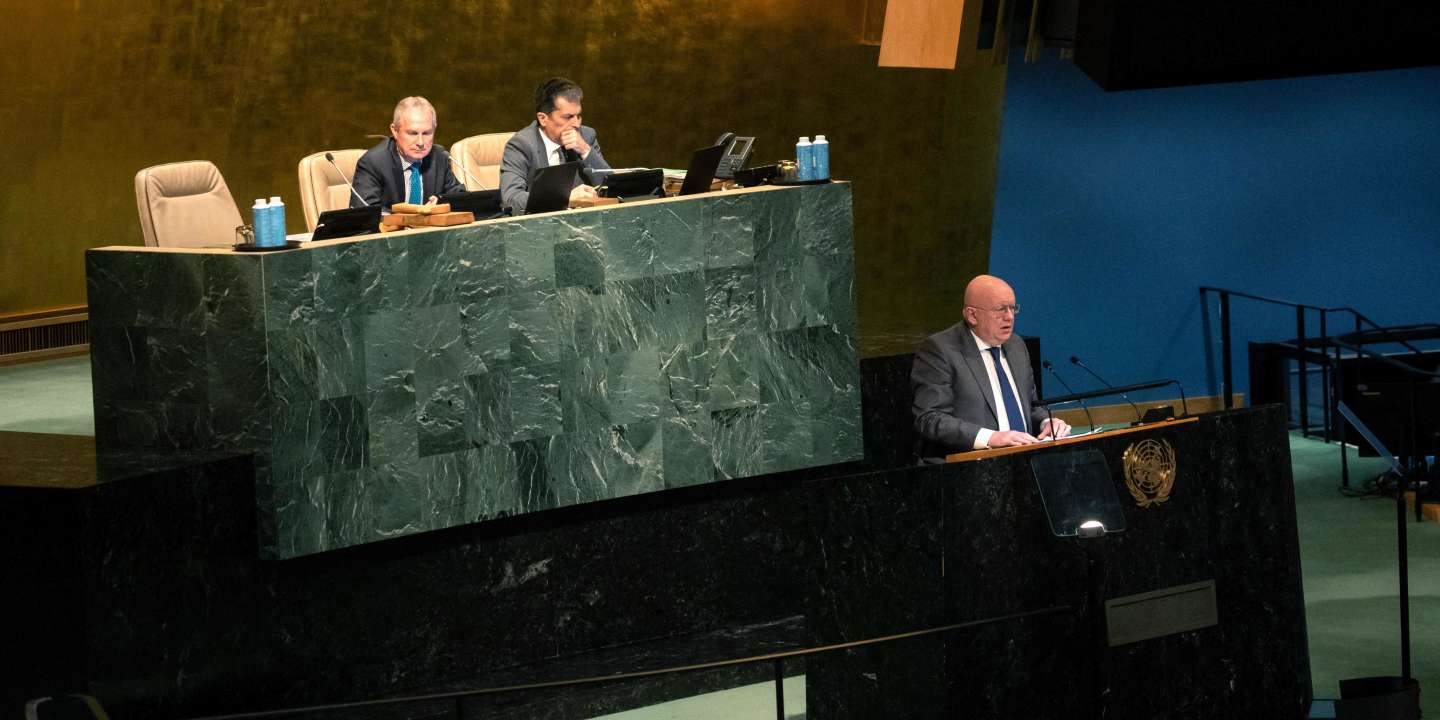Where is the world going? Proposed by the Russian Federation at the 77th session of the Committee on Social, Humanitarian and Cultural Affairs of the UN General Assembly, commonly referred to as the “Third Committee”, a draft resolution condemning “the glorification of Nazism, neo-Nazism and other practices, that help fuel contemporary forms of racism, racial discrimination, xenophobia and related intolerance,” was voted on Friday by 105 states, including Algeria, with 52 votes against and 15 abstentions. It is the first time in history that a conviction of Nazism, which has always been the consensus of the international community, divides the world. Even at the height of the Cold War, we did not see such deep divisions, hesitation, reluctance to condemn the unspeakable because the initiative came from Russia, made by the Westerners and their allies in the Russian-Ukrainian K rieg was accused of exploiting the history and commemoration of the victims of Nazism for political purposes. The fact is unprecedented: among the countries that voted against or abstained, many suffered cruelly in their flesh from the horrors of Nazism, a commemorative tragedy they carry deep in their souls and commemorates and meditates on every year is celebrated. How can we imagine countries erased from the map by Hitler’s troops revisiting this dark page in human history with political sophistry that almost tends to justify and acquit Nazi crimes? Japan, France, Germany, all the countries of the European Union, the United States, Canada… have voted against the draft resolution that Russia has regularly submitted to the United Nations General Assembly since 2005. A resolution that always went through the mail like a letter and was adopted by an overwhelming majority. Last year, on December 16, 2021, the text received 130 votes in favor, 2 against (USA and Ukraine) and 49 abstentions. France, which voted against the resolution this year, has always abstained from voting in previous years. Of course, given the content of the resolution, which traditionally and by its very nature enjoys a very broad consensus, if not unanimity of votes at the United Nations General Assembly deliberations on the subject, this highly controversial, even unexpected vote, resolved at Russia, the authors of the resolution, and from the countries that co-sponsored the text, such as China, and more generally from the states that supported the Moscow initiative, a reaction of indignation and disapproval. In response to the results of the vote, Deputy Permanent Representative of Russia to the United Nations Gennady Kuzmin described the attitude of countries hostile to the resolution tabled by his country “simply shocking”considering that “For the first time in the history of the UN, the former Axis countries have voted against a document condemning Nazism”. The Russian diplomat attacked Germany, Japan and Italy in particular and castigated them “blatant godlessness towards the commemoration of the victims of German National Socialism, Italian fascism and Japanese militarism”. For its part, the European Union, which voted overwhelmingly against the resolution, tried to justify its vote by saying that it was on an election campaign “For years, so that the fight against extremism and the condemnation of the despicable ideology of Nazism is not misused and appropriated for political purposes that seek to excuse further violations and abuses of human rights”. In other words, the 27 EU states see this resolution as nothing more than an instrumentalization of Putin’s Russia’s denunciation of Nazism in order to legitimize the Ukraine war initiated by Moscow in the name of “denazification”. This opinion is also shared by Canada and the United States (the only country that has voted against these resolutions in ten years), who see this resolution as an attempt by Russia “Legitimizing a Discourse Based on Misinformation”. Ukraine denounces the “height of hypocrisy, a pretext used by Russia to justify its brutal war against its country and its heinous crimes against humanity”.
This war of remembrance, which was brought before the UN around the condemnation of National Socialism, showed that if “war is the continuation of politics by other means”, to paraphrase the war specialist Carl von Clausewitz, politics is also the continuation of politics with war other means.

Twitter enthusiast. Organizer. Explorer. Reader. Zombie aficionado. Tv specialist. Thinker. Incurable internet maven.





;Composite=(type=URL,url=https://images.radio-canada.ca/v1/assets/elements/16x9/outdated-content-2017.png),gravity=SouthEast,placement=Over,location=(0,0),scale=1)
;Composite=(type=URL,url=https://images.radio-canada.ca/v1/assets/elements/16x9/outdated-content-2020.png),gravity=SouthEast,placement=Over,location=(0,0),scale=1)